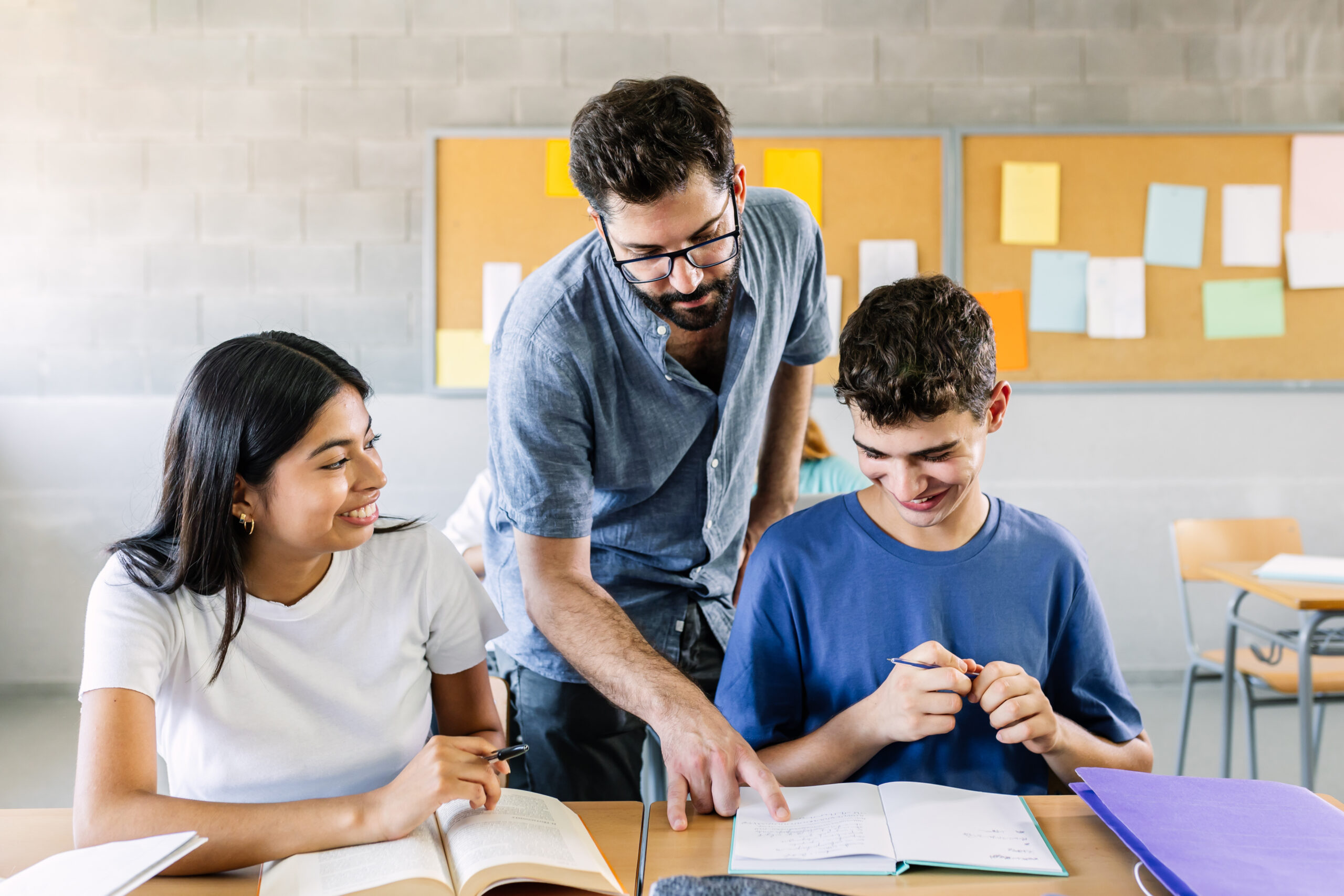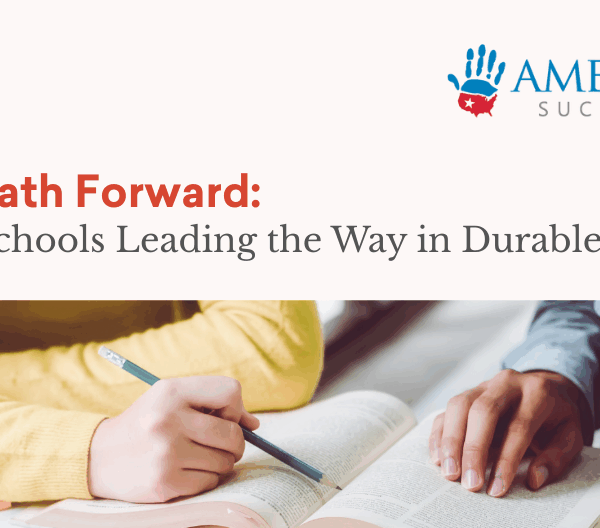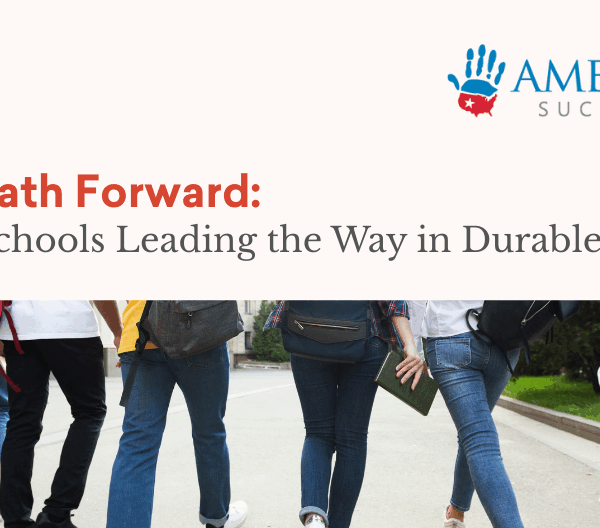When Sarah, a high school sophomore, gave a presentation on her community service project, she didn’t just display her work; she showcased confidence, communication skills, and critical thinking. Moments like these are the driving force behind our Research Practice Collaborative’s mission. We aim to uncover how schools like Sarah’s effectively cultivate vital Durable Skills that students will carry with them forever.
To select schools/programs for Phase 1, we focused on those we believed to be prioritizing the development of Durable Skills, as we sought to better understand the context and practices that supported such development. We leveraged our networks and discussed with our research advisors which schools/programs seemed to be emphasizing Durable Skills education. In order to learn with and from a diverse group of Phase 1 participating programs, we included schools/programs across a range of categories: geography, race/ethnicity, socioeconomics, public/private/charter, enrollment size, etc.
The America Succeeds team, along with lead advisors from the research team, engaged with administrators, educators, and students from each school to understand their perspectives about nurturing Durable Skills. In this blog, we will provide an overview of the four schools participating in Phase 1, highlighting their core values and key practices.
Bostonia Global: A Holistic, Individualized, and Inclusive Model
Bostonia Global High School, located in El Cajon, California, aims to create well-rounded individuals who are prepared for various post-secondary pathways. Recognizing that traditional education models do not cater to every student’s needs, the school provides personalized learning experiences: “We have 400 students. That means we have 400 different pathways,” shared Nerel Winter, CEO of Bostonia Global. This involves understanding each student’s strengths, weaknesses, and interests to tailor their education journey accordingly. The focus is to make high quality education accessible to all students, regardless of their socio-economic background.
At Bostonia Global, Durable Skills form the cornerstone of the educational approach. They have identified 24 key competencies that students will need as they transition from K12 education to their future endeavors. Advisors use these competencies to assess student progress, focusing on individual growth rather than achieving proficiency in all areas.
Winter shared insights into their personalized model, “The way we move away from [limiting career pathway methods] is that you start the contextualizing of a career when they enter school at the very beginning, and then it gives them tons of exposure and opportunity and time to see what’s out there.”
GO CAPS Monett: Emphasizing Unique Strengths and Real-World Skills
Part of the CAPS Network, GO CAPS Monett (Monett, Missouri) is an innovative program that immerses high school students in a professional environment, allowing them to explore potential careers, develop professional skills, and earn high school and college credit through a dynamic, industry-aligned curriculum. This program helps students develop a strong sense of self, understand their strengths, interests, and values, and build a pathway to their future goals. The students engage in project-based learning that capitalizes on their individual strengths, rather than relying on a standardized educational model.
Rebecca Merriman, Director of GO CAPS Monett, shared, “…I think students leave with a sense of ‘oh, now I understand what collaboration truly means. I know what it’s like to work with peers with similar interests and goals, to complete a project where we all truly have contributed.’ And so I think we do a great job in different ways in each of our strands on what that collaboration looks like.”
Recognizing that content-heavy education often overlooks the importance of Durable Skills, GO CAPS Monett emphasizes these skills through unique experiences. Students learn to plan and execute projects, communicate effectively, give and receive feedback, and more. These real-world skills are integrated into their daily activities, ensuring that students are well-practiced and confident, to deploy their skills whenever and wherever needed.
Gibson Ek: Preparing Students Through Purpose-Driven Learning
Gibson Ek High School, located in Issaquah, Washington, employs a personalized learning approach designed to nurture students’ personal qualities, communication skills, and reasoning abilities through a rich array of internships, projects, and design/skill labs. This approach enables students to actively engage in their education, making it relevant and aligned with their individual interests and career aspirations.
“I think the Big Picture [Learning] philosophy that we layered in is that it’s got to be real world and authentic and that… a student’s vision and interest is driving things, and that that’s facilitated with a personal relationship,” Tonja Reischl, Principal at Gibson Ek, shared.
A pivotal component of this educational model is the role of advisors who work closely with students to create personalized learning plans and portfolios that showcase their growth over time. These portfolios serve as a comprehensive record of each student’s achievements and areas for development, highlighting their ability to apply learned skills in real-world contexts. Internships, projects, and labs are integral to this process, providing authentic, purpose-driven learning experiences that prepare students for college and careers.
Building 21 Philadelphia: Competency-Based Learning for Real-World Readiness
Building 21 Philadelphia has adopted a forward-thinking competency-based learning model that prioritizes performance tasks aligned with specific competencies over traditional courses. This approach allows for students to focus on developing the skills and knowledge that are most relevant to their future goals.
To facilitate their learning model, Building 21 has created “studio guides,” which provide teachers with a structured framework for designing and delivering learning experiences. Each of these learning experiences support the development of well-articulated competencies and skills, which teachers and students regularly discuss. They also use a technology dashboard for tracking competencies and skills, which enables students and teachers to engage competency-based learning more efficiently and transparently.
Laura Shubilla, Co-Founder of Building 21, expanded on what a culminating task for these learning opportunities looks like: “And sometimes they’re big. They’ll invite lots of people from outside. Sometimes they’re smaller, and they’ll invite industry professionals in to… give students feedback on their learning. But we try to do all different kinds of exhibitions of learning, in the context of what the kids are doing.” These real-world applications of competencies ensure that students are not only learning in the classroom but also gaining practical experience that prepares them for life beyond school.
Thank you to the four programs, their dedicated staff, and their brilliant students for joining us in the advancement and scalability of Durable Skills implementation. By understanding these diverse strategies, we look forward to enhancing the development of Durable Skills in students across varied educational settings. Through the insights gained from this collaborative effort, we aim to provide valuable guidance for other schools striving to cultivate the essential skills that will prepare students for success today and into the future.




